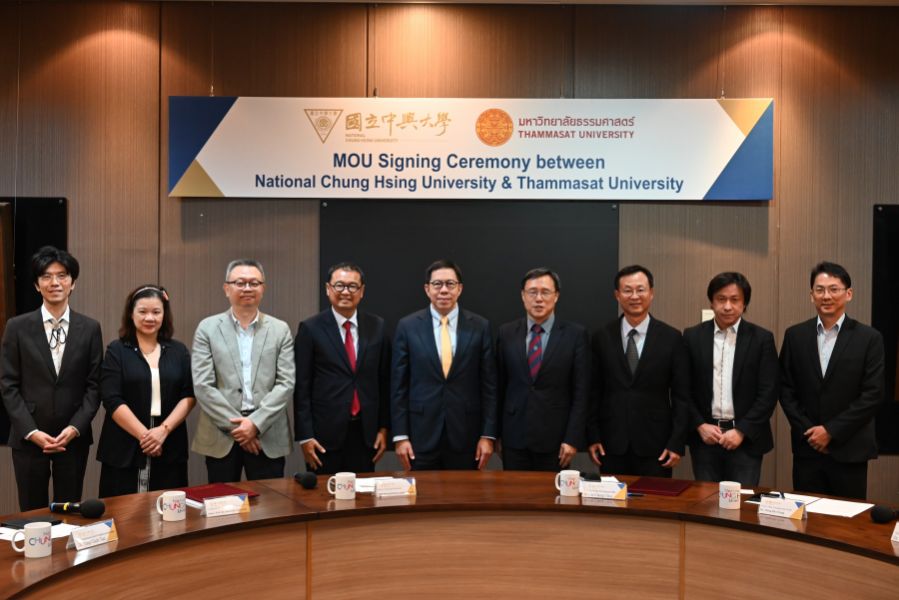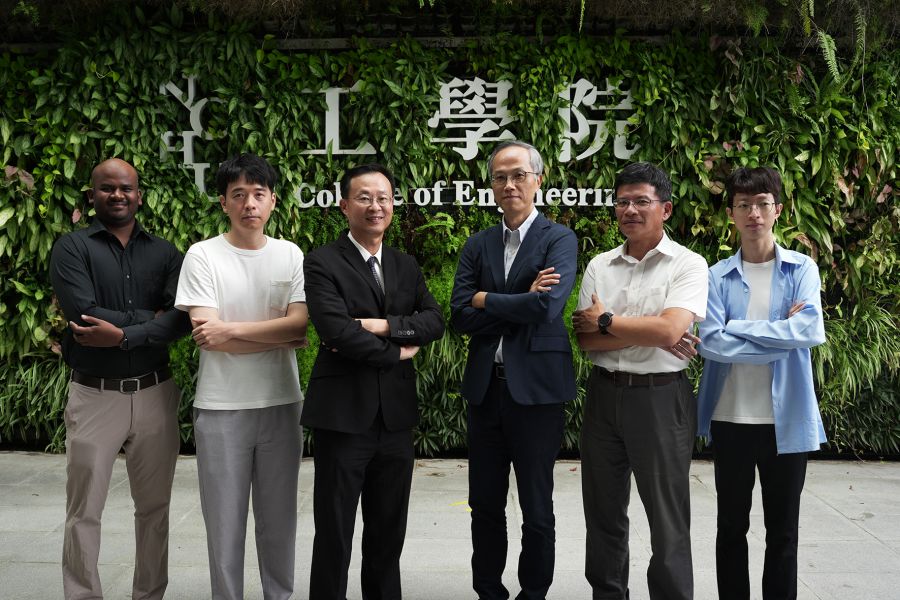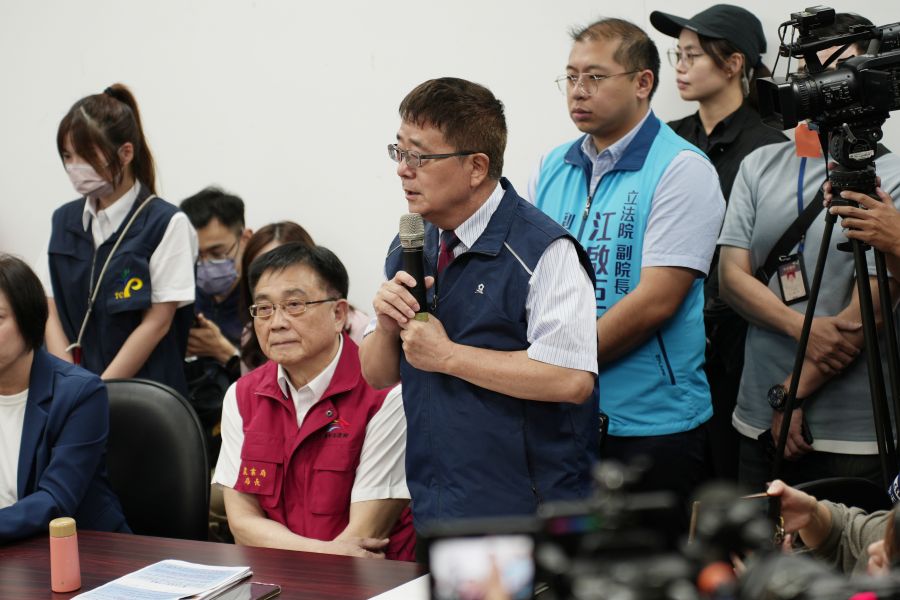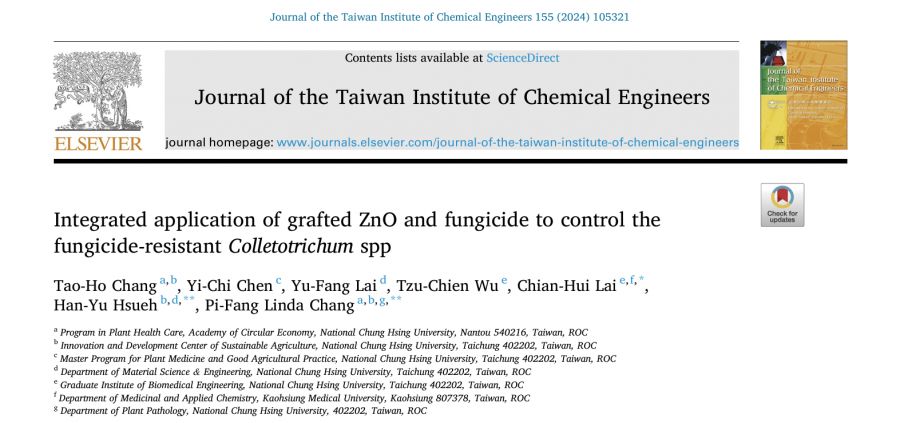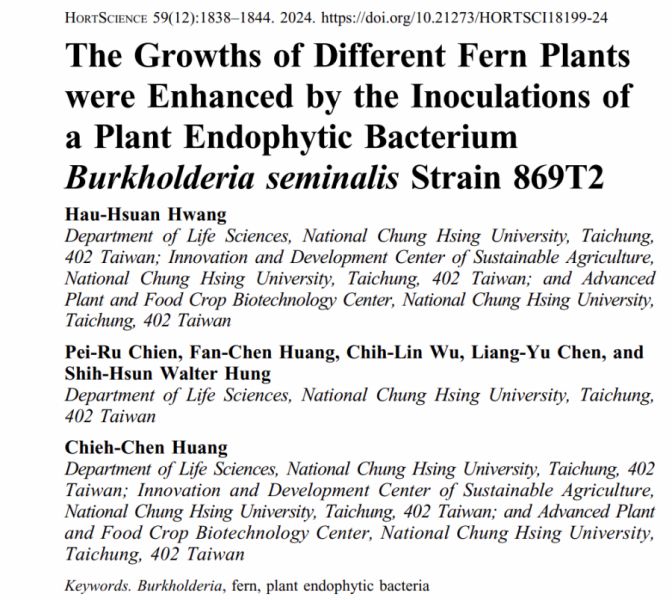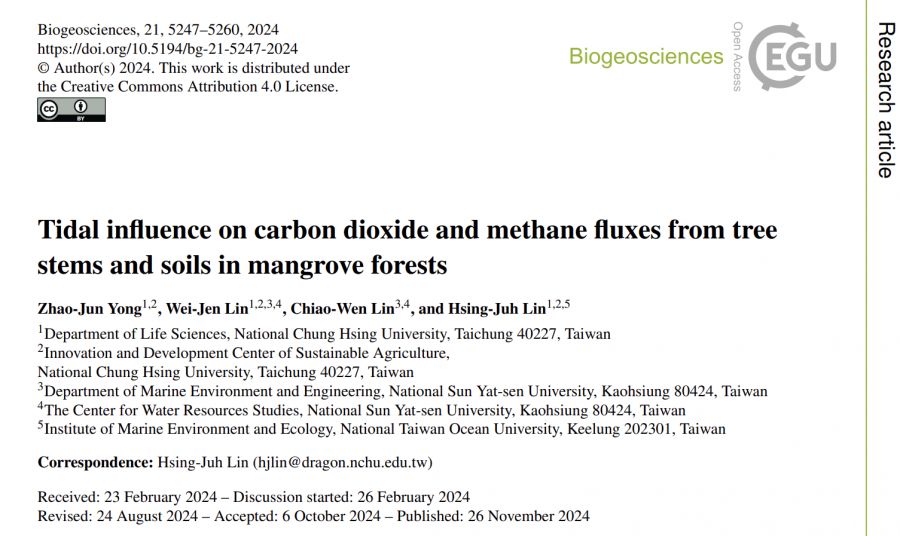| 論文篇名 | 英文:Adsorption mechanisms of chromate and phosphate on hydrotalcite: A combination of macroscopic and spectroscopic studies 中文:鉻酸鹽和磷酸鹽在菱水鎂鋁石上的吸附機制:巨觀和光譜研究之結合 |
| 期刊名稱 | Environmental Pollution |
| 發表年份,卷數,起迄頁數 | 2019, 247: 180-187 |
| 作者 | Hsu, L.C., Tzou, Y.M., Ching, P.N., Fu, W.M., Wang, M.K., Teah, H.Y., Liu, Y.T.* |
| DOI | 10.1016/j.envpol.2019.01.012 |
| 中文摘要 | 菱水鎂鋁石是一種層狀雙氫氧化物,被認為是移除陰離子污染物的潛在吸附劑。因此本研究將探討不同pH和溫度下,菱水鎂鋁石吸附鉻酸鹽和磷酸鹽之行為,並透過等溫、動力吸附和競爭吸附試驗以及鉻的X光吸收細微結構光譜了解其吸附機制。鉻酸鹽和磷酸鹽在菱水鎂鋁石上的最大吸附量分別為0.16及0.23 毫莫爾/克。在吸附動力試驗結果中,二階模式可以很好地描述鉻酸鹽和磷酸鹽在菱水鎂鋁石上的吸附行為,然而隨著pH從5升高到9,鉻酸鹽和磷酸鹽在菱水鎂鋁石上的吸附速率則顯著的下降。鉻酸鹽和磷酸鹽的吸附行為分為快和慢兩階段,其邊界在15分鐘。這種雙相吸附行為可能部分歸因於不同反應途徑,包括陰離子交換和表面錯合。鉻的X光吸收細微結構光譜分析的擬合結果顯示菱水鎂鋁石表面上的鋁和鉻酸鹽之間有直接的鍵結。表面錯合機制為菱水鎂鋁石上吸附鉻酸鹽的速率決定步驟。相反地,菱水鎂鋁石的水合夾層間的擴散作用則是吸附磷酸鹽的主要速率決定步驟。本研究提出鉻酸鹽和磷酸鹽在菱水鎂鋁石上的吸附行為,包括初始轉移過程和後續的吸附機制。此研究將作為潛在吸附劑的菱水鎂鋁石改善陰離子污染物的復育策略。 |
| 英文摘要 | Hydrotalcite (HT) is a layered double hydroxide (LDH), which is considered as a potential adsorbent to remove anion contaminants. In this study, adsorption of chromate (CrO4) and phosphate (PO4) on HT was conducted at various pH and temperatures. Related adsorption mechanisms were determined via the isotherm, kinetic, and competitive adsorption studies as well as the Cr K-edge X-ray absorption fine-structure (XAFS) spectroscopy. The maximum adsorption capacities for CrO4 and PO4 on HT were 0.16 and 0.23 mmol g−1. Regarding adsorption kinetics, CrO4 and PO4 adsorption on HT could be well described by the second order model, and the rate coefficient of CrO4 and PO4 on HT decreased significantly with the increasing pH from 5 to 9. The adsorption kinetics for CrO4 and PO4 were divided into fast and slow stages with the boundary at 15 min. This biphasic adsorption behavior might be partially attributed to multiple reactive pathways including anion exchange and surface complexation. Fitting results of Cr K-edge EXAFS analysis showed a direct bonding between CrO4 and Al on HT surfaces. Such a surface complexation appeared to be the rate-limiting step for CrO4 adsorption on HT. By contrast, the diffusion through the hydrated interlayer space of HT was the major rate-limiting step for PO4. This study determined the adsorption behaviors of CrO4 and PO4 on HT, including the initial transfer process and the subsequent adsorption mechanisms. Such information could improve the strategy to use HT as the potential adsorbent for the remediation of anionic pollutants. |
Adsorption mechanisms of chromate phosphate on hydrotalcite: A combination of macroscopic spectroscopic studies 2019-01-08

新穎材料農業:友善環境農業新穎材料研發與安全評估【土環系劉雨庭副教授】

